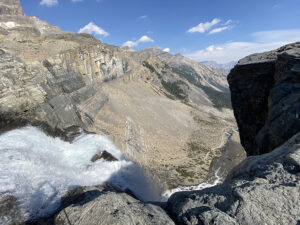Bogus helicopter rescues and rampant overcharging by local hospitals are threatening the tourism industry in Nepal.
Aimed at western insurance companies rather than individual travelers, the scams include serving bad food to trekkers to make them sick, so they can be evacuated by helicopter. The unscrupulous outfitters then receive kickbacks from the helicopter companies and hospitals.
The average cost of an evacuation is $6,000, with 10 to 15 percent kickbacks to the guides who summon them. Often the guides will make more from the rescue call than from the trek.
Companies in Britain, the U.S. and Australia have threatened to stop issuing policies to tourists visiting Nepal unless the corruption is brought under control.
Last month, an exhaustive government report recommended investigating eight trekking and rescue agencies: Kailash Charter Rescue, Alpine Rescue, Mountain Heli Charter Service, Eagle Heli Charter Service, Flight Connection Domestic, Mountain Rescue Service and Himalayan Social Journey Trekking. In all, 10 helicopter companies, 6 hospitals and 36 trekking and rescue agencies are under review.
Specific cases include the vastly over-billed evacuation of a group of trekkers (50,000 euros) and a US$24,000 charge for minor treatment in a hospital.

Hundreds of rescue helicopter flights aid stricken climbers and trekkers each year. Many are not necessary. Photo Simrick Air
Companies use a variety of over-billing tricks. They “encourage” the client to say that they were the only tourist on the flight. Then the helicopter service can bill every one of the rescued tourists for the full cost of the flight. Sometimes, hospitals take the westerners’ passports “for insurance purposes”, then hang onto them to ensure the patients can’t leave before the hospital maximizes its claim.
Danny Kaine of Travellers Assist, a UK-based company representing international insurers in Nepal, claims that his firm has prevented 61 fraudulent helicopter rescues between May 30 and August 1 of this year. He believes that 30 percent of rescues are unnecessary. “The situation is out of control,” he says.





